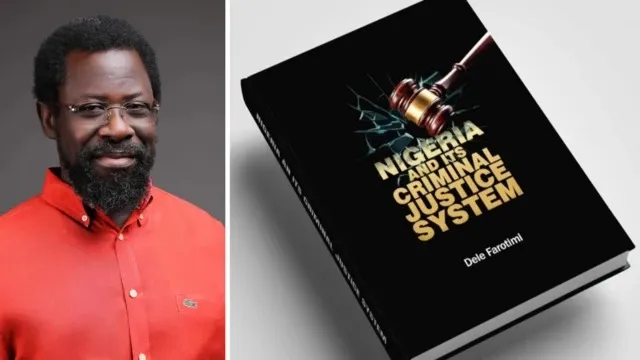Dele Farotimi’s “Nigeria and Its Criminal Justice System” Gains Massive Popularity Following Legal Drama
Controversial Book Skyrockets to Amazon Bestseller After Author's Arrest

In an unexpected turn of events, Dele Farotimi’s book “Nigeria and Its Criminal Justice System” has rocketed to Amazon’s bestseller list, driven by a controversial arrest that has captured national attention. The sudden surge in popularity highlights the Streisand effect, where attempts to suppress information only amplify public interest.
Published in July 2024, the book initially languished in relative obscurity. However, the dramatic arrest of Farotimi by armed policemen in Lagos, reportedly at the behest of 93-year-old lawyer and businessman Afe Babalola, has transformed the publication into a must-read for curious Nigerians.
A Book That Struck a Nerve
Farotimi’s work critically examines systemic corruption within Nigeria’s judicial system, offering pointed critiques of legal institutions and specific figures. The book’s allegations, particularly those concerning Babalola’s alleged compromising of the judiciary, appear to have struck a sensitive chord.
Babalola’s response—filing a petition leading to Farotimi’s arrest—has inadvertently become a powerful marketing mechanism. Instead of silencing the narrative, the legal action has sparked widespread curiosity, driving citizens to bookstores and online platforms in droves.
From Obscurity to Bestseller
Within hours of Farotimi’s arrest and transportation to Ado Ekiti, the book experienced a remarkable transformation. Amazon’s rankings tell a story of public interest, with the book climbing to bestseller status by Thursday evening.
The author was arraigned in Ekiti on Wednesday, with a judge remanding him in custody pending a bail hearing on December 10. This legal proceeding has only further intensified public intrigue about the book’s contents.
Public Response and Implications
The surge in book sales reflects more than just curiosity. It represents an apparent public desire for transparency and accountability within Nigeria’s judicial system. Farotimi’s book appears to have tapped into a collective sentiment of frustration with institutional corruption.
As the legal drama unfolds, “Nigeria and Its Criminal Justice System” has become more than a book—it’s now a symbol of resistance against attempts to suppress critical discourse.






